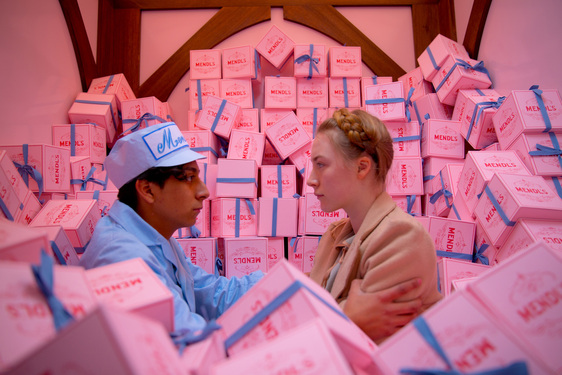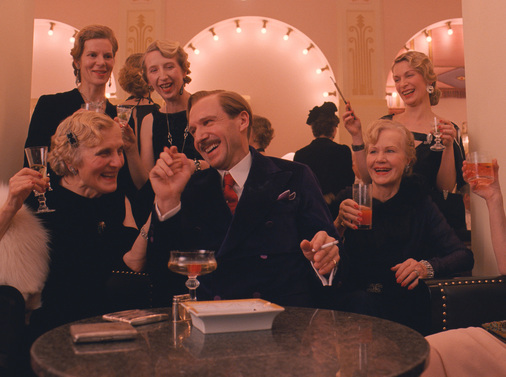The Grand Budapest Hotel is a story within a story within a story within a story (much less confusing than it sounds) largely set in an imaginary yet familiar Eastern European nation between two wars in the 1930s. The film explores the adventures of a legendary concierge, Gustave H, and his trusted lobby boy, Zero Moustafa, in the Grand Budapest Hotel. Gustave H has a flair for rich, blonde, vain, older women and enjoys speaking in sumptuously sophisticated poetic prose. After one of his latest and longest trysts, Madame D. (Tilda Swinton), departs the hotel with a premonition of death, she is murdered. Gustave rushes to her and learns she willed him a priceless Renaissance painting called “Boy With Apple”. Her dysfunctional family is so furious that her two sons, Dmitri (Adrien Brody) and Joping (Willem Dafoe), end up knocking out Gustave and Zero at the reading of the will. Gustave is implicated soon in her murder by a man who is now missing and is taken to jail by a reluctant policeman, Henckels (Edward Norton). Madame D.’s lawyer, Deputy Kovacs (Jeff Goldblum), attempts to piece together her will under the watchful eye of her family, and Zero must employ his love interest, a baker named Agatha (Saoirse Ronan), to help Gustave escape from prison and clear his name. Chases on motorcycles, trains, sleds, and skis ensue as the adventures twist and turn in a hilarious fashion.
As with every other Anderson film, familial discourse is the norm among characters; yet this film feels very different. Anderson provides a much lighter take on the issues underlying each character’s family life. I can’t help but think of a recent conversation I had with Boston Globe critic Ty Burr, during which he commented, “This is the first Wes Anderson movie that doesn't feel as if it's nursing a private wound.” The characters seem to take themselves much less seriously. Gustave speaks poetically, but at one point as he’s about to launch into an all-too-familiar diatribe, he instead says, “Oh, fuck it” and takes a drink. Anderson seems to replace his usual emotionally heavy scenes and moments, like suicide in The Royal Tenenbaums or abandonment in Moonrise Kingdom, with straight forward violence. This reflects the darkness of the previous and impending wars the story is sandwiched between—and Willem Dafoe plays the perfect villain.
Wes’s style is perhaps one of the most recognizable in cinema, and The Grand Budapest Hotel delivers a hilarious and enjoyable story with heart shrouded in just the right number of [probably model-size] clouds.
Grade: A


 RSS Feed
RSS Feed
